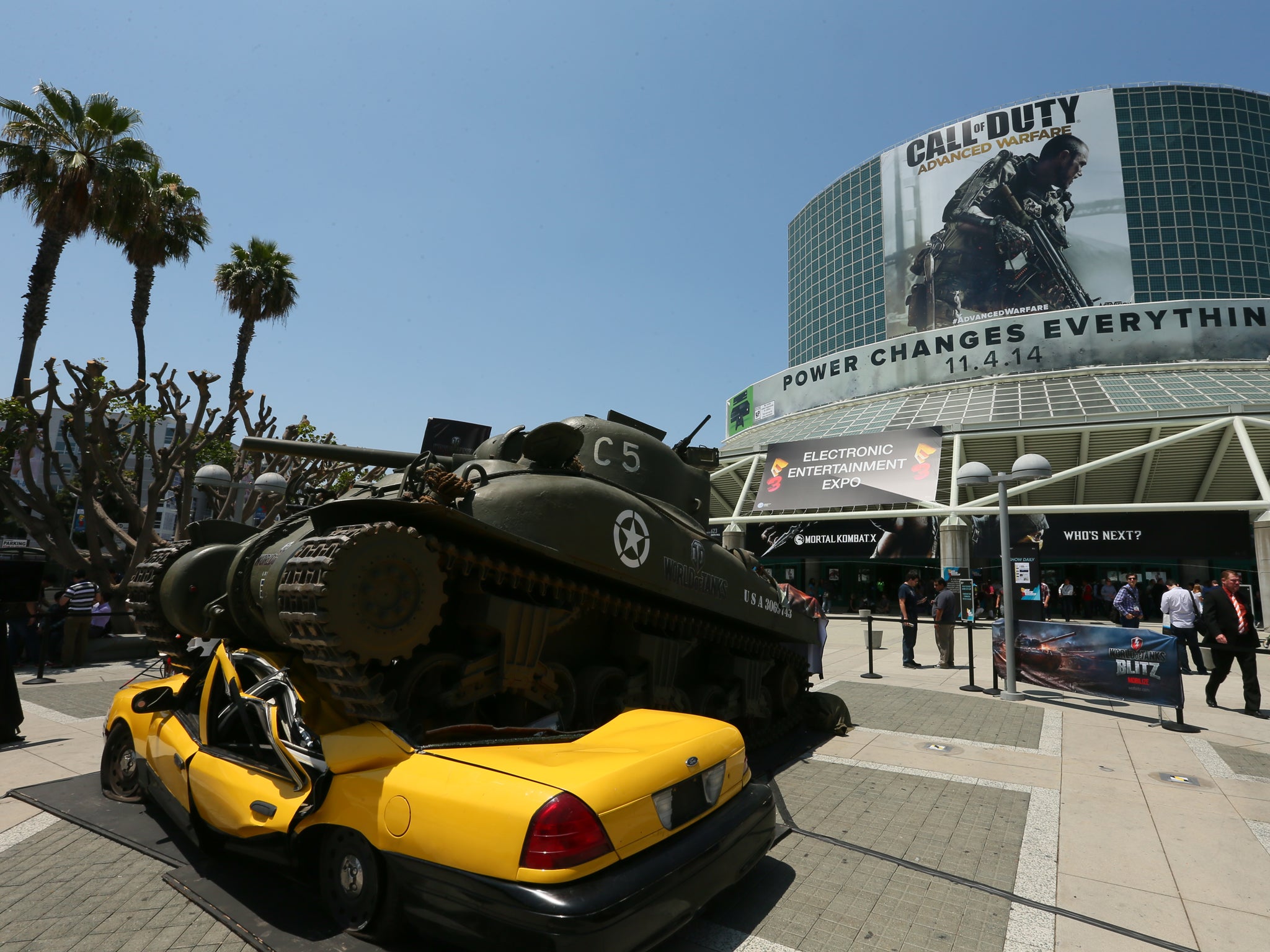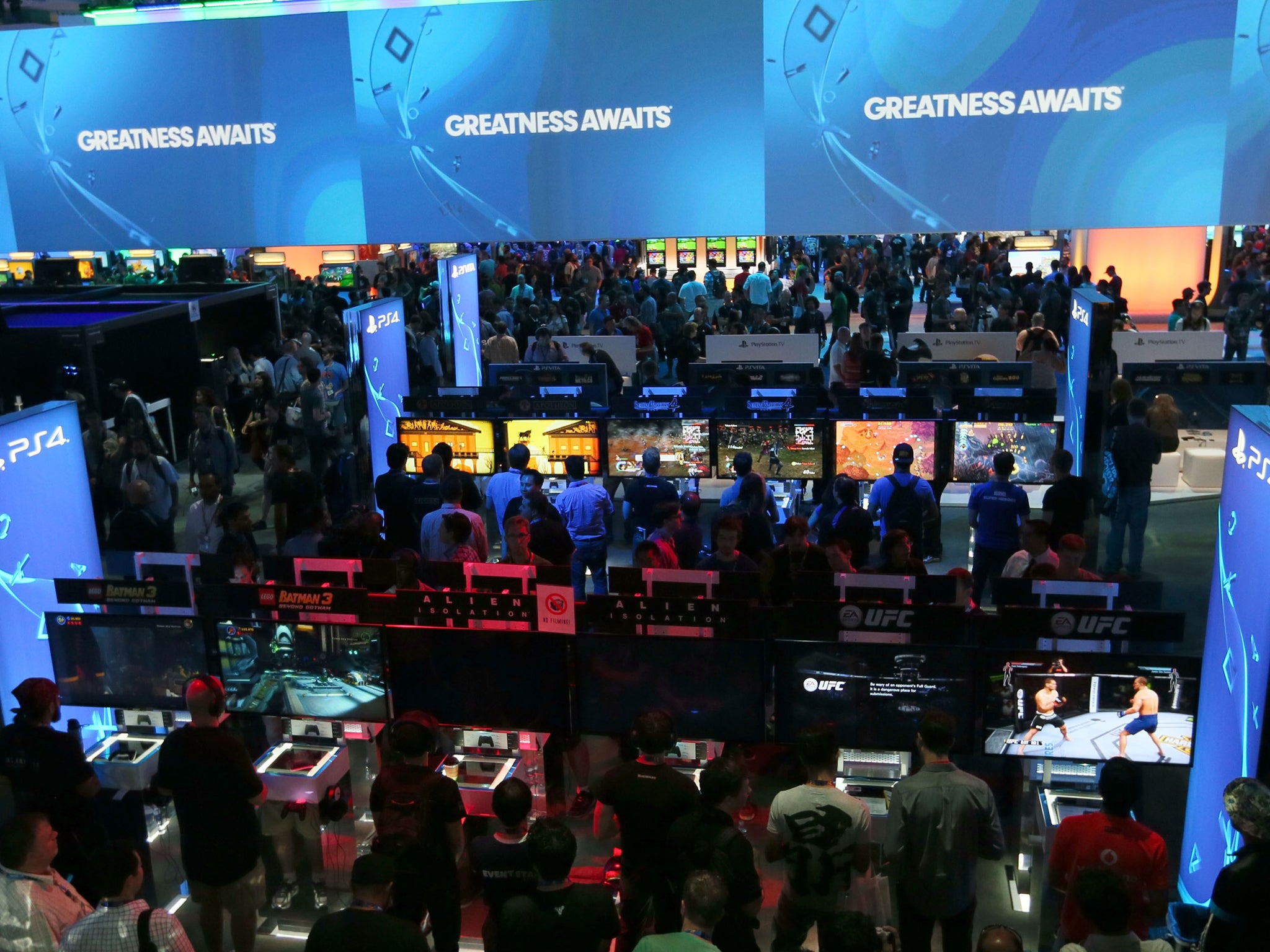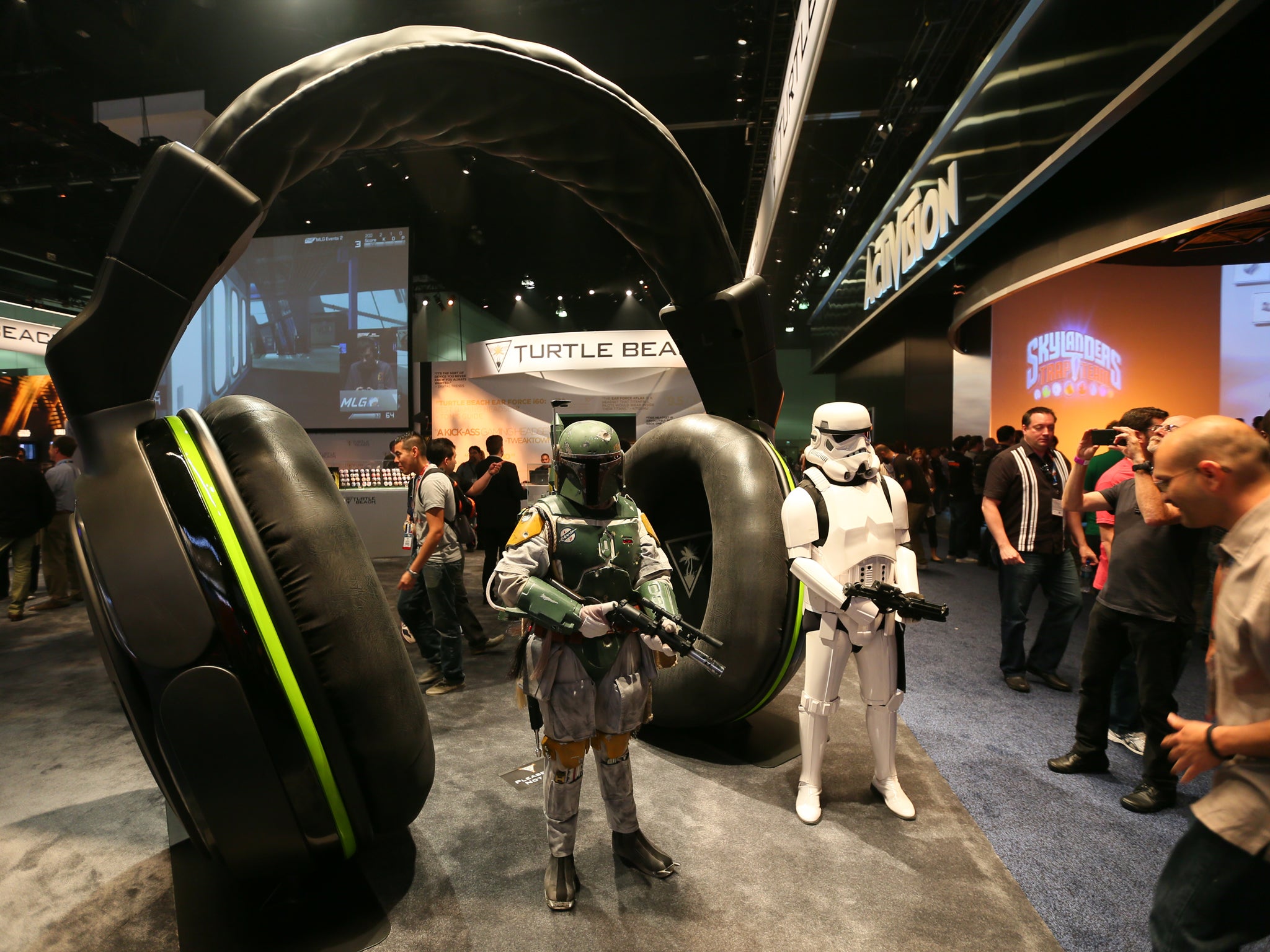E3 2015: As much-loved franchises die off, where will fan's new favourites come from?
The gaming industry banks on a stable of reliable titles — but they are gradually disappearing, and it’s not clear that anything will take their place

Several thousand miles of cable snake around the Los Angeles Convention Centre (LACC), the home of E3 supplying exhibitors with the power to light up the stands that have taken months of planning and assembling. But the space is getting crowded. Hopefuls and established companies alike will be looking to make their latest hardware and software stand out at this month's E3, the world’s biggest gaming event, optimistic their products will find interest in a marketplace that is becoming ever more crowded and difficult.
For visitors to the LACC when it opens in just over a week's time, the overwhelming feeling inside will perhaps be one of familiarity - and not just because of the usual neon-lit booths, booming music and costumed mascots. Major software firms will be revealing sequels to monster franchises like Fallout, The Legend of Zelda and Uncharted. But where is the space for new intellectual property?
The pushing back of Uncharted 4 to 2016 has undoubtedly blown a huge hole in the Sony calendar. To make up for it they’ll be banking heavily on both a remaster of the original PS3 Uncharted trilogy and newcomer No Man's Sky to invigorate their rather tired looking winter schedule. The most exciting thing about the No Man's Sky reveal is that, although we've heard an almost infinite amount about how, ahem, infinite the universe it allows you to explore, there's been precious little information about what you do when you actually get to these far-flung galaxies. As the release date creeps ever nearer, E3 should show us in greater detail why the game warrants the level of anticipation it has garnered.

Sony also have The Witness, an intriguing first person puzzle-led game developed by Thekla Inc, bearing all the hallmarks of a sleeper hit. With enigmatic design recalling the off-kilter, abstract nature of Journey or The Unfinished Swan, this and Everybody's Gone to the Rapture show firm support for original ideas in the PlayStation camp. Long-time devotees will also be praying for re-activation of the long dormant The Last Guardian, a game keenly anticipated by fans of Team Ico's cultish output despite the hype being based chiefly on a four-minute trailer from five years ago.
Microsoft have banked heavily on timed-exclusive Tomb Raider, another huge franchise familiar to gamers everywhere, but appear to have neglected to come up with much fresh content of their own. Their primary focus is on clawing back market-share from Sony by readying Forza 6 and Halo 5 in time for the Christmas rush. However, Phil Spencer has recently tweeted that he thinks 2015 will be "our best 1st party content year ever", so they may be ready to spring a few pleasant surprises. It's certainly something to keep an eye on as Microsoft have some catching up to do in territories where they previously dominated sales, and successful new first-party ideas could be just what they need.
Nintendo have already unloaded their latest IP Splatoon onto the market, splashing colour all over the online shooter genre. Sadly, their rate of production has been tortoise-like, not an ideal situation for a company already cursed with a reputation as slow movers. Even new titles in existing franchises seem to drip out slowly, with Star Fox and Zelda both finally on the way, almost three years since the Wii U’s launch. They've even obliquely alluded to the constant craving for new Mario games by creating Mario Maker, allowing gamers to design and populate their own fiendishly tough levels using classic assets - perhaps leaving Nintendo themselves more time to work on fresh ideas. However, chances of them announcing brand new game concepts at E3 seem slim.
There's no doubt that in the current climate, launching a fresh intellectual property on the market is a risky business. Activision's Destiny and Ubisoft's Watch Dogs are the two biggest new IPs to launch onto the console market in the last few years, yet neither game truly satisfied - Destiny lacked depth beyond an endless grind, and Watch Dogs failed to dispel the notion that it was merely Assassin's Creed wearing a new skin and brandishing a few shallow tech gimmicks.
Creating new IP is often something of a double-edged sword, as the costs for producing and marketing a new title compared with that of churning out another sequel are often prohibitive to generating new ideas and concepts. However, once the gaming public begin to change their minds about a franchise, often due to failure to fix persistent faults or lack of innovation within a series, it can be hard to win back the doubters - and if the title costs a lot to make, and doesn't reach sales targets, then a formerly loved-series can end up dying on the vine.

Witness Medal of Honor's fall from grace with the poorly received Warfighter in 2012 - a once record-breaking shooter now languishing on EA's backburner behind the Battlefield series. Or the protracted genesis of Duke Nukem Forever, resulting in an awful game that has surely eternally buried the wise-cracking hero. Looking even further back, Sonic the Hedgehog's persistent failure to transition smoothly into three-dimensions. While his once arch-rival Mario is still critically adored and remains Nintendo's bestseller, Sonic limps on through disappointments like last year's Sonic Boom.
While Nintendo largely continue to preach to the converted and Microsoft seemingly aiming for the middle ground, it perhaps falls to Sony to take pole position both in market share and in the role of ushering in new designs and concepts for gaming. With the market increasingly divided between AAA sequels and low-budget indie hopefuls, is it too much to ask for a trend in development that balances both, allowing interesting and dynamic new concepts to emerge on a broad scale?
Bookmark popover
Removed from bookmarks